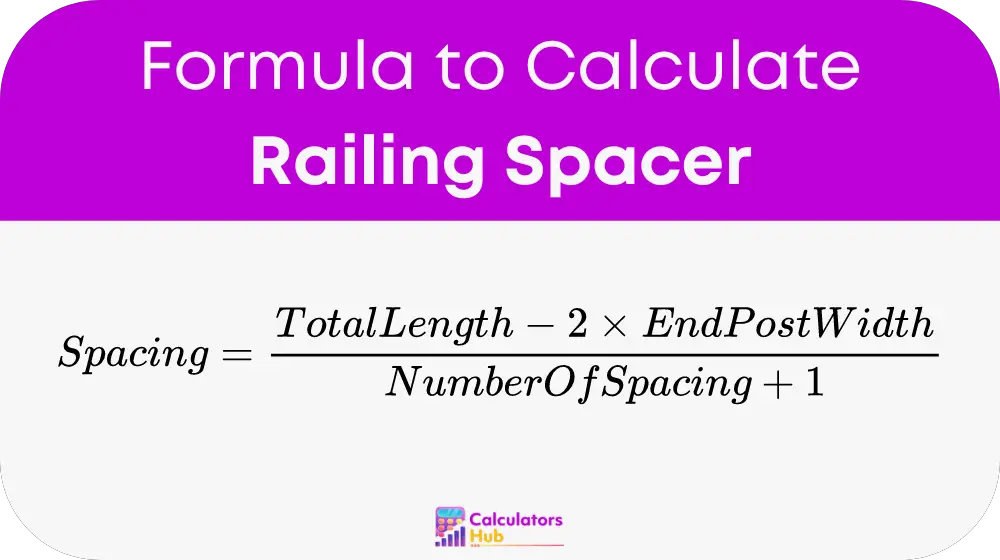A Railing Spacer Calculator simplifies the process of determining the optimal spacing between the railings in any construction or DIY project. It ensures that the railings are evenly spaced, enhancing both the safety and appearance of the structure. This tool is particularly useful for homeowners, builders, and DIY enthusiasts who are looking to achieve professional-quality results without guesswork.
Formula of Railing Spacer Calculator
To calculate the spacing between railings, use the following straightforward formula:

Where:
- Total Length is the total length of the railing section.
- End Post Width is the width of the posts at each end of the railing.
- Number of Spacers is the number of spacers you plan to use.
This formula helps determine the exact distance needed between each section of the railing, ensuring a balanced and visually pleasing result.
Table for General Terms
The following table includes general terms and conversions that are handy when planning your railing project:
| Term | Description | Typical Values |
|---|---|---|
| Total Length | Length of the railing section | 10 feet, 20 feet |
| End Post Width | Width of the posts at each end | 4 inches, 6 inches |
| Number of Spacers | Number of spacers between railings | 5, 10, 15 |
This table serves as a quick reference to help users understand and apply the formula without needing to perform complex calculations each time.
Example of Railing Spacer Calculator
Let’s consider a railing section that is 20 feet long with end posts that are 4 inches wide each, and we want to use 10 spacers:
Spacing = (20 feet – 2 * 4 inches) / (10 + 1) = 21.45 inches (approximately)
This example demonstrates how to apply the formula to ensure that each spacer is accurately placed, guaranteeing the structural integrity and aesthetic quality of the railing.
Most Common FAQs
A: Yes, the Railing Spacer Calculator is versatile and can be use for wood, metal. Any other material as long as the measurements are enter correctly.
A: For curved railings, it’s recommend to consult with a professional as the spacing might require adjustments for the curvature, which the standard calculator may not account for.